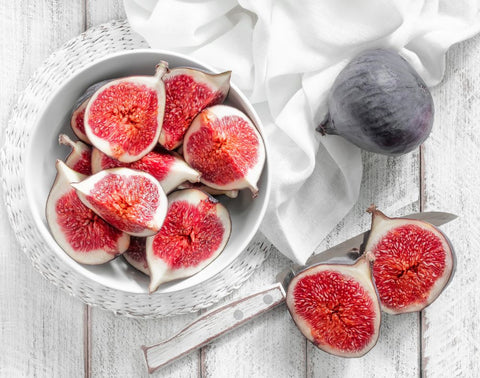
The American Heart Association recommends no more than six teaspoons of added sugar per day for women and nine per day for men (emphasis on added sugar, not sugar from fruits and veggies). But the average American consumes 94 grams every day. Excessive sugar may be inked to diabetes and heart issues.
As a mom and a baker, I’m always looking at the sugar levels of food for me and my family. Besides being linked to health issues, white/ refined sugar is highly processed leaving it with empty calories and no nutritional benefits. I figured there had to be better sugar alternatives and there certainly are.
**Note that I am not a nutritionist or a dietician, but I am a baking nerd so the information below is what I’ve gathered from my research.**
Let’s break down the pro’s and con’s of Natural Sugar Alternatives for baking:

1. Agave is derived from the agave plant.
Pro: It has a very low glycemic index score, meaning it doesn’t spike blood sugar nearly as much as refined sugar.
Con: It contains 90% fructose, which could be linked to weight gain plus the manufacturing process destroys any nutrients or antioxidants.

2. Coconut Sugar is derived from the sap of the coconut palm tree.
Pro: It contains a fiber called inulin, which may help stabilize blood sugar. Plus, palm trees don’t need to be cut down to produce this sugar.
Con: It still contains a lot of sugar.

3. Honey is made by bees.
Pro: Rich in antioxidants, Vitamin C and minerals.
Con: High in sugar content plus a violator for any vegan diet.

4. Stevia comes from the Stevia rebaudiana bush, native to South America.
Pro: It is a zero calorie sweetener.
Con: May harm your gut microbiome and may have an aftertaste.

5. Monkfruit is derived from the monk fruit.
Pro: It is a zero calorie sweetener that doesn’t affect blood sugars and contains antioxidants.
Con: Has a strange aftertaste.

6. Allulose is the newest sugar substitute. Known as the rare sugar because it is derived in small quantities from figs and raisins.
Pro: It does not appear to raise sugar levels and most resembles refined sugar with 30% less sweetness.
Con: Consumed in large quantities can cause stomach discomfort and bloating.

7. Sugar alcohols, also known as polyols, are naturally found in fruits and vegetables. These include erythritol, xylitol, and maltitol.
Pro: They don’t impact blood sugar levels like refined sugar as they have a low glycemic index.
Con: The downside to some sugar alcohols include xylitol is highly toxic for dogs, sorbitol may have laxative effects and erythritol may cause an upset stomach if excessive amounts are ingested.
Takeaway
Natural sugars and sugar alcohols tend to be lower in calories and have a lower impact on blood sugar than refined sugar. Plus, some come with nutrients. Figure out which sugar is best for your body. But, remember that sugar is still sugar so best to consume sparingly.
*Article based on research from the Food Revolution Network and Healthline.


